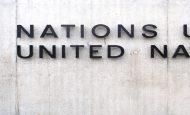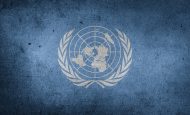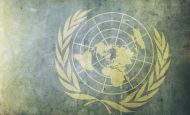HRW and the UN BDS Blacklist - The Facts
Click Here for more Information on the UN BDS Blacklist
Predictably, Human Rights Watch (HRW) officials have been extensively praising the release of the UN Human Rights Council BDS Blacklist. HRW played a central role in lobbying UN High Commissioner Michelle Bachelet and providing information to her office for use in compiling the list. On November 28, 2019, Bachelet met with Ken Roth, HRW’s executive director, and Omar Shakir, HRW’s BDS coordinator.
HRW’s responses to the publication of the list continue to perpetuate false claims and defame companies listed by the UN:
1) The standard HRW talking point (see, for instance, Deputy Director for Advocacy Bruno Stagno) falsely claimed that “The long awaited release of the UN settlement business database should put all companies on notice: to do business with illegal settlements is to aid in the commission of war crimes.”
Fact: There is no court opinion or international business and human rights guidelines that state that doing business with settlements abets war crimes. In fact, HRW’s recently departed MENA division head, Sarah Leah Whitson (now head of research at Quincy Institute), is an active proponent of Armenian settlement activity in Nagorno-Karabakh.
2) HRW Program Director Iain Levine claimed, “Businesses which support the settlements are facilitating human rights abuses and the HRC has an obligation to expose this.”
Fact: In contrast to his false statement, the report and list published by the UNHRC did not provide any evidence whatsoever that any of the companies had facilitated a single abuse. Other materials published by HRW and the UNHRC assert that a company’s very presence in the West Bank means it is contributing to abuses – a standard without any basis in business and human rights frameworks. Moreover, naming and shaming companies is directly opposed to the business and human rights frameworks established under the UN Guiding Principles and OECD Guidelines for Responsible Business Conduct that is supposed to be guiding the UN. Thirdly, under the UN Charter, the UN Human Rights Council is not authorized to create sanctions lists, a power vested solely with the Security Council.
3) Ken Roth continued his long practice of snarky tweets directed at Israel: “The Israeli government would have us believe the UN is singling it out by reporting on companies doing business with its illegal settlements. Then there’s the truth.”
Fact: The UN has never issued a similar list, nor are there plans to do so. Instead, the UN has followed Roth in obsessively singling out Israel.
4) In a related false claim, obscuring the antisemitic intent, HRW Crisis Advocacy Director Akshaya Kumar tweeted: “Friendly reminder that this process is not singling out Israel. In August 2019, the UN listed 59 foreign companies with ties to Myanmar’s army. https://ohchr.org/Documents/HRBodies/HRCouncil/FFM-Myanmar/EconomicInterestsMyanmarMilitary/A_HRC_42_CRP_3.pdf… Back in 2003, UN reported of companies contributing to the conflict in the DRC.”
Fact: Neither of these cases is comparable. (1) The Myanmar list was of companies and shell entities owned or controlled by senior leaders in Myanmar’s military. In contrast, the BDS blacklist targeted private companies with no connection to Israeli officials in order to induce boycotts of Israel as a whole. In addition, the Myanmar list was created by an independent Fact Finding Mission, not the Office of the High Commissioner for Human Rights, and it was not ordered by the Human Rights Council. (2) The DRC list was compiled by the UN Security Council, not the Human Rights Council. It was viewed as so outrageous and controversial that the Security Council was forced to backtrack, remove many names, and end the initiative shortly thereafter.
5) HRW officials attacked Airbnb and similar travel websites.
Fact: As exposed by NGO Monitor, this campaign was rejected by these companies on the basis that they were discriminatory and in violation of domestic and international laws.
6) Akshaya Kumar singled out General Mills, noting the blacklist’s claim that it is supposedly involved in “the use of natural resources, in particular water and land, for business purposes” and repeating information from a pro-BDS NGO that “they’re making kosher frozen @Pillsbury dough for export in an illegal settlement.” Fact: This example highlights numerous absurd aspects of the blacklist:
- The list does not provide any specific details as to how General Mills is using “natural resources” for “business purposes,” or how this contributes to “abuses.”
- All indications suggest that the so-called “use of natural resources” is renting commercial space in an industrial zone.
- The bakery in question is located within the municipal boundaries of Jerusalem.
- This represents, at most, a miniscule proportion of General Mills business, inasmuch as this involves a single bakery that produces niche products for a subsidiary of one of the company’s brands. This indicates that General Mills was included because it is a huge international company with a recognizable brand, not because of any substantial connection to violations and abuse.
- The reference to “kosher” products highlights HRW’s obsession with Jews and the discriminatory intent of its publications and statements. The fact that the bakery is making kosher dough is irrelevant.



